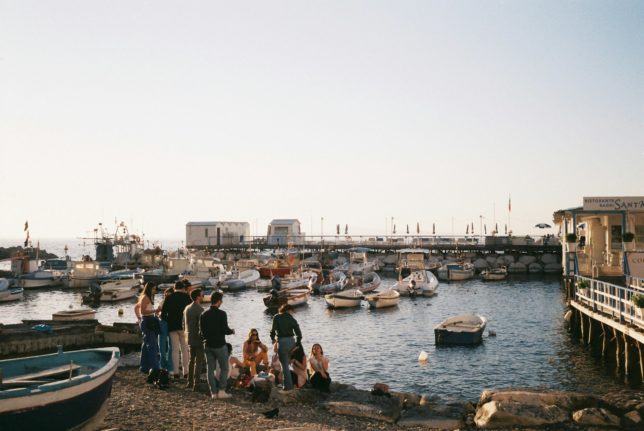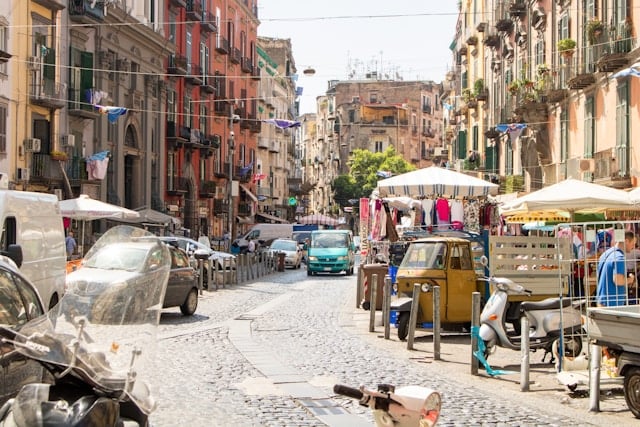For most Italian-language learners, it’s a familiar scenario: you kick off your learning journey with textbooks and courses to familiarise yourself with all the tricky grammar and vocabulary, but as soon as you start talking to a native speaker, you hear words you’ve never come across before, as well as some slightly confusing noises.
These funny sounds, which are usually referred to as interjections by language experts, can be used to express anything from exhaustion to anger to surprise, or even to check whether the person you’re talking to is listening.
Whether your ultimate goal is to sound like a native or simply add some natural flair to your Italian, it’s worth getting familiar with the most popular interjections and trying to incorporate them in your everyday conversations.
Boh
If you live in Italy, chances are there are a few things that you find slightly puzzling about the country and for which you may have no immediate explanation.
For instance, why are Italians always so late? Or why are they so obsessed with cleaning?
Your answer to both of the above questions may be boh.
READ ALSO: Etto, ino, ello: How to make Italian words smaller
Boh is a common way to say ‘I don’t know’ in informal situations, with Italians often underlining their point by thrusting their chin forward and pulling down their lips.
Remember: boh doesn’t rhyme with ‘oh’ or ‘so’ in English; it sounds more like a ‘buh’. Hear the correct pronunciation here.
Beh
One vowel can make all the difference in the world in Italian, so be careful not to confuse the above-mentioned boh with beh.
Beh (pronunciation available here) is actually a short version of bene, which is the Italian equivalent of the English ‘well’ and can, in most cases, be translated as such.
For instance:
Beh, potrebbe andare peggio. Potrebbe piovere.
Well, it could be worse. It could be raining.
Beh, e’ molto piu’ veloce di quanto pensassi.
Well, he’s way quicker than I thought.
You’ll often find beh followed by senti (‘well, listen…’) or insomma (‘well, not really…’).
Eh
Eh might not be the most beautiful word in the Italian language, but it’s certainly one of the most versatile as it can be used to express a huge variety of emotions – from astonishment to irritation to regret – depending on the tone of voice you use.
Unlike the English ‘eh’, the Italian eh doesn’t rhyme with ‘may’: it’s a short vowel sound, like the one in ‘meh’ (hear its pronunciation here).
As for how to translate it, eh can be anything from ‘yeah’ to ‘right’ to ‘what?’ .
M’ha chiuso la porta in faccia!
Eh?!
He shut the door in my face!
What?!
Lo conosci?
Eh, e quindi?
Do you know him?
Yeah, so what?
You can also use it to ask questions, either because you expect someone to agree with you or because you haven’t heard what they said.
Bella giornata, eh?
Nice day, right?
Uffa
If you ever find yourself irritated or annoyed by something in Italy (and you probably will at some point), uffa is one of the best ways to express it in everyday speech.
It means the same as ‘ugh’ or ‘geez’ in English, and is pronounced ‘ooh-fah’, with a very strong emphasis on the ‘f’.
READ ALSO: ‘I’m not Onassis’: Seven things Italian dads say and what they mean
It is very informal, but it isn’t vulgar and you’ll hear people of all ages use it.
Uffa, ho dimenticato di comprare il sapone.
Ugh, I forgot to buy the soap.
Mah
Mah (hear it pronounced here) is one of the most popular ways to express doubt or uncertainty about something that may or may not happen in the future. Think of it as a short version of chi lo sa? (‘who knows?’).
Come pensi andra’ a finire?
Mah…Non ho una palla di cristallo purtroppo.
How do you think it will pan out?
Who knows…I don’t have a crystal ball unfortunately.
You can also use it to tease someone.
Mi stai preparando una sorpresa per l’anniversario di matrimonio?
Mah! Vedremo…
Are you preparing a surprise for our wedding anniversary?
Who knows! We’ll see…
Mah can sometimes be used interchangeably with boh, though boh is more commonly used with things that the speaker doesn’t know about but other people may, whereas mah generally applies to situations or outcomes that no one can possibly know about as they haven’t happened yet.
Do you have another favourite Italian interjection that’s not on this list? Let us know in the comments section below.



 Please whitelist us to continue reading.
Please whitelist us to continue reading.
Italians in Veneto often make a clicking sound with their tongue. This means “no’. And it can be very embarrassing until you learn it!